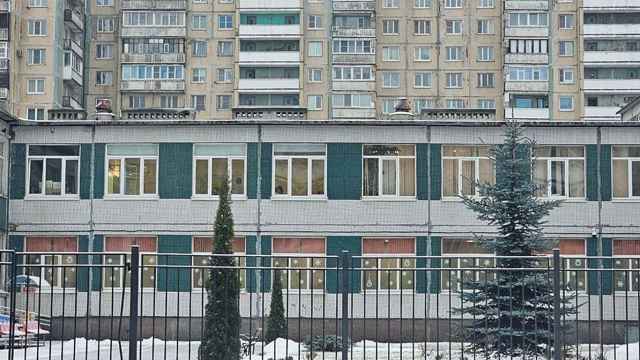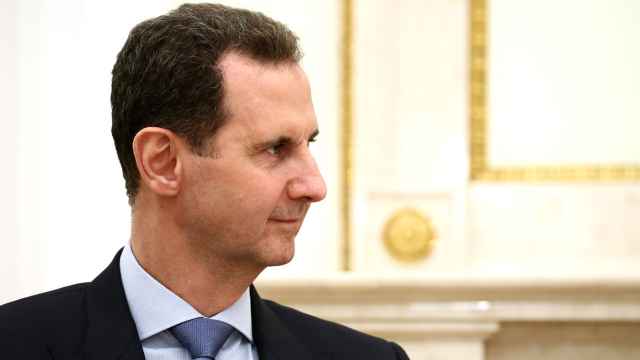The First Amendment to the U.S. Constitution is devoted to freedom of religion, speech and assembly. In particular, it states, "Congress shall make no law … abridging … the right of the people peaceably to assemble, and to petition the government for a redress of grievances."
Freedom of assembly is an inalienable human right and political freedom. It is also codified in Article 20 of the Declaration of Human Rights, Article 11 of the European Convention on Human Rights and in dozens of countries' constitutions.
But freedom of assembly no longer exists in Russia. State Duma deputies from United Russia passed a law last week that contradicts not only the country's Constitution but also violates international agreements that Russia has signed.
I have no doubt that United Russia passed the law on the personal orders of President Vladimir Putin, who is turning this country into a police state. Putin is seeking revenge for, among other things, the way demonstrators spoiled his May 7 inauguration by staging mass protests in Moscow the day before he took the oath of office.
Unsuccessful attempts at revolution are always followed by even harsher measures from the authorities. That is what we see happening now in Russia. No doubt a number of Putin's henchmen are already planning to eliminate elements that Putin finds most frightening and threatening to his monopoly rule: independent media outlets, protest rallies, the Internet and individuals who finance the opposition.
The Putin regime is serious about its war against the people. One sign of this: The number of OMON riot police has more than doubled since 2003, exceeding 25,000 men.
Of course, the pro-Kremlin Nashi youth movement will never be subject to Putin's new law, even if one of its rallies turns violent again. Nor will Eduard Bagirov, a Putin loyalist and author, pay a price for having written about Russians that, "You are all swine, dumb, dirty swine. … You bastards, I will beat the stuffing out of you and burn you to ashes." But if gossip columnist Bozhena Rynska were to write that she'd like to rip out the eyes of the riot policeman who broke her arm, she would risk even greater injury at the hands of pro-government thugs. Putin's friends can insult Russians openly, but nobody else can so much as clear their throat if it somehow tarnishes the image of the national leader.
Although Putin is taking revenge against protesters, whom he once called "Bandar-log monkeys," his punishments are not very formidable. Those daring to participate in unsanctioned protest rallies or commit an "illegal act" at a sanctioned protest now face fines of 300,000 rubles ($9,000) for individuals and 1 million rubles for organizers. Such measures might be extreme and unheard of in free societies, but they come off as rather comic for an authoritarian regime. Can you imagine Josef Stalin dealing with his enemies by levying fines on them instead of purging them or sending them to the gulag?
That is exactly the main problem for Putin and his ruling elite. As much as they would like to, they simply can't treat their enemies like Stalin did or like Syrian President Bashar Assad is doing now. Unlike Stalin and Assad, Putin's clan holds a significant portion of their assets in the West. Putin would love to thumb his nose at the West and clamp down on the protesters once and for all, but he simply can't afford to do so.
Yulia Latynina hosts a political talk show on Ekho Moskvy radio.
A Message from The Moscow Times:
Dear readers,
We are facing unprecedented challenges. Russia's Prosecutor General's Office has designated The Moscow Times as an "undesirable" organization, criminalizing our work and putting our staff at risk of prosecution. This follows our earlier unjust labeling as a "foreign agent."
These actions are direct attempts to silence independent journalism in Russia. The authorities claim our work "discredits the decisions of the Russian leadership." We see things differently: we strive to provide accurate, unbiased reporting on Russia.
We, the journalists of The Moscow Times, refuse to be silenced. But to continue our work, we need your help.
Your support, no matter how small, makes a world of difference. If you can, please support us monthly starting from just $2. It's quick to set up, and every contribution makes a significant impact.
By supporting The Moscow Times, you're defending open, independent journalism in the face of repression. Thank you for standing with us.
Remind me later.





